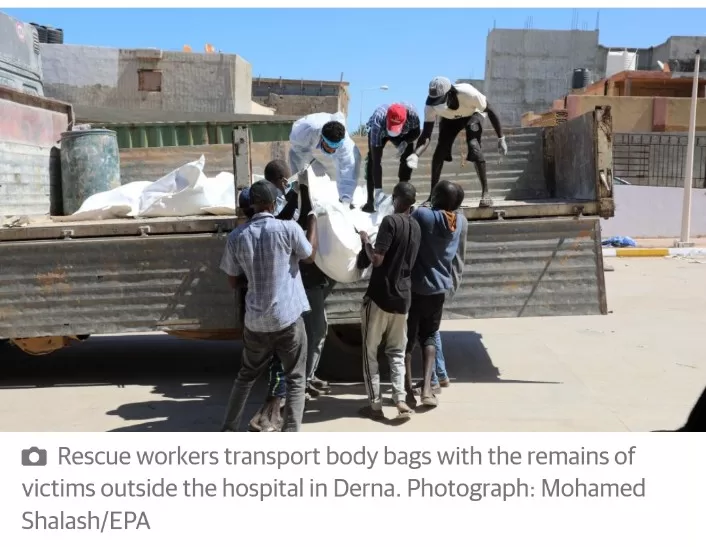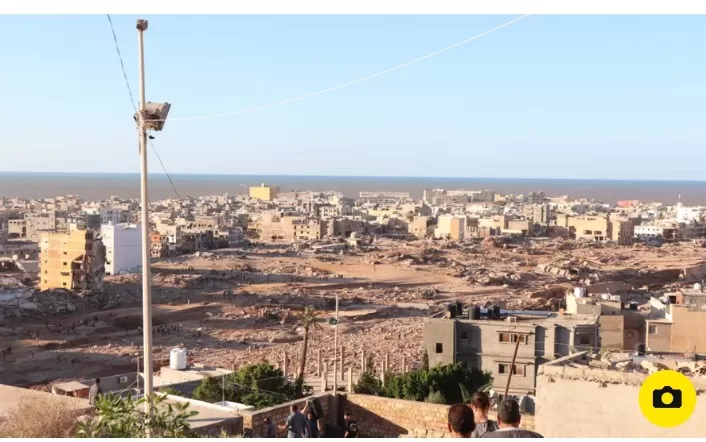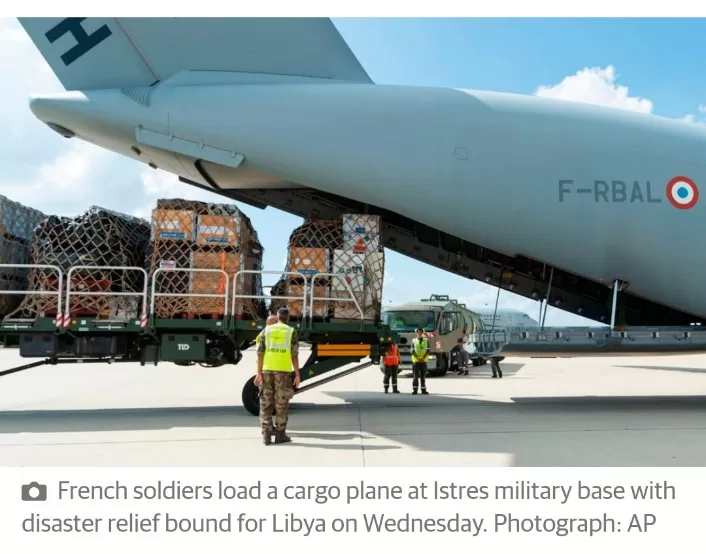In the aftermath of a catastrophic flood that has left thousands dead and many more missing, the embattled city of Derna in Libya finds itself in dire need of body bags. International aid efforts are gradually gaining momentum as assistance begins to reach this stricken coastal city, which bore the brunt of Storm Daniel’s fury over the weekend. Shockingly, estimates suggest that up to 20,000 lives may have been lost.
Derna’s mayor, Abdulmenam al-Ghaithi, urgently appealed for specialized teams equipped for body recovery, expressing grave concerns about the looming threat of an epidemic. Lutfi al-Misrati, director of a search team, echoed this plea, emphasizing the pressing need for body bags.
Hichem Abu Chkiouat, the minister of civil aviation in the eastern Libyan administration, described a grim situation where the sea continues to wash ashore dozens of lifeless bodies. Sea patrols have been tirelessly combing the coastline in search of these casualties, with many being transported to Tobruk for potential identification.

Emad al-Falah, an aid worker hailing from Benghazi, painted a grim picture, revealing that the deceased can be found everywhere – inside homes, on the streets, and even adrift at sea. Entire families have been tragically wiped out.
To prevent the spread of disease, a somber necessity has emerged: collective burials in mass graves. Derna’s residents have been fervently requesting the establishment of a new field hospital, as the city’s two existing hospitals have been transformed into makeshift morgues.
International rescue teams from Egypt, Tunisia, the United Arab Emirates, Turkey, and Qatar have descended upon Derna to lend their aid. Turkey is poised to send a ship loaded with equipment to establish two field hospitals, along with a contingent of 148 medical professionals to bolster rescue efforts. The United Kingdom has also pledged an initial aid package of up to £1 million.
The United Nations-recognized government of national unity, based in Tripoli, reported that 12 countries have dispatched aid and rescue teams to Libya. This assistance includes rescue and recovery teams, search dogs, field hospitals, medical personnel, thermal sensing equipment, diving and water suction teams, food supplies, shelter materials, and vessels and aircraft to aid in the recovery process.
Mayor al-Ghaithi grimly predicted that the death toll in Derna could surge to between 18,000 and 20,000, taking into account the extent of the flood’s devastation across various districts.
The flood tragedy has also claimed the lives of dozens of Egyptian migrants, whose remains have been repatriated to Beni Suef, south of Cairo. Concerns are mounting because Derna and neighboring Sousse, due to their proximity to Italy and Greece, have been focal points for thousands of migrants attempting perilous Mediterranean crossings. Many of these migrants resided in subpar housing close to the port.

Aid organizations have encountered significant obstacles in reaching Derna, where roads have been ravaged by the deluge. Helicopters have been indispensable for transport, mainly provided by Egypt.
Journalist Mohamed Eljarh, en route to Derna, reported that rescue teams have not yet reached certain areas of the city, particularly in the eastern sector, as well as the coastal town of Sousse and the al-Sahel municipality. He lamented that cries for help were still emanating from survivors trapped beneath the debris. The situation in Sousse and its environs, according to Eljarh, represents a new tragic chapter, with hundreds of homes submerged under mud and wreckage, and assistance yet to arrive.
The heart-wrenching tales of survivors and those searching for their loved ones continue to unfold. Usama Al Husadi, a 52-year-old driver, remains desperate to find his wife and five children. Mohamed Mohsen Bujmila, a 41-year-old engineer, mourns the loss of his sister, whose husband and son have also perished.
As Libya grapples with this unprecedented calamity, the world watches in sorrow, and the challenges of recovery loom large.
Source Reuters




